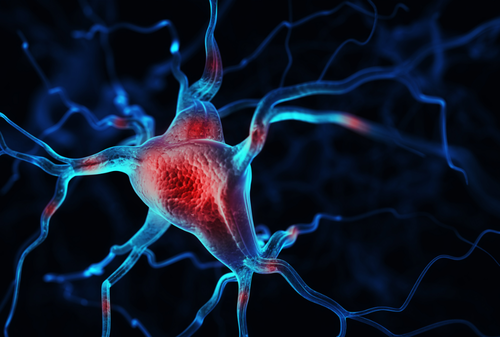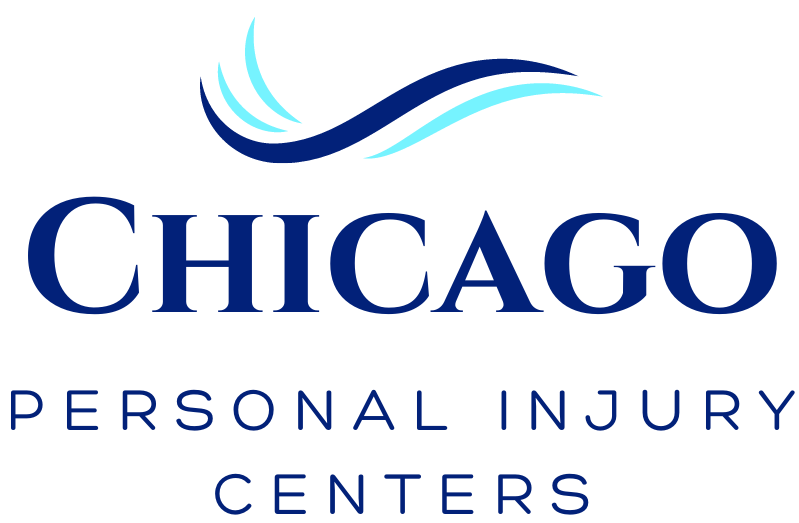A quick answer to this question is yes. Traumatic injury can cause neuropathy, a form of chronic pain caused by damage or injury to the peripheral nerves.
While it’s common to feel pain after being injured in an accident, neuropathy, which is also known as nerve pain, tends to last long after the injury has healed.
It happens when one or more of the 43 pairs of motor and sensory peripheral nerves (the nerves located outside of the spinal cord and the brain) are injured or damaged, causing weakness, numbness, and sharp pain, usually in the hands and feet.
In some extreme cases, damage to the peripheral nerves can affect other areas and body functions, including digestion.
Distinguishing Neuropathy from Normal Injuries
Neuropathy can manifest itself in a wide variety of ways, depending on the severity and location of the nerve damage. However, diagnosing nerve pain is never easy.
In many cases, it requires a differential diagnosis to ascertain whether a patient is suffering from neuropathy. Additionally, it requires the patient to qualify for the pain.
In most cases, if the pain is characterized by sharp, needling, or radiating pain or numbness, neuropathy may be causing the pain. However, a diagnosis has to be carried out to determine the exact location and cause of chronic pain.
Causes of Neuropathy
Many people tend to assume that nerve pain results from severed nerves, as is the case of amputation. However, even stretching, compressing, and crushing nerves can cause neuropathy.
As such, traction or stretch, contusion or compression, transection or nerve laceration, or combined injury trauma mechanisms can cause nerve injury and/or damage, thereby causing neuropathy.
Traumatic peripheral neuropathy occurs in any type of common accident, including:
- Slip and fall
- Car accidents
- Sport injuries
- Workplace injuries
- Truck accidents
- Gunshot wounds
Nerve injuries can occur in many different ways and have varying degrees of pain. However, the sooner the traumatic injury is diagnosed, the better the chances a patient has of limiting damage and making a full recovery.
Common Locations of Neuropathy
Most patients suffering from peripheral neuropathy typically complain of sharp, stabbing pain, tingling, and numbness in the feet and hands.
There are many locations throughout the feet and hands that can develop neuropathy after a traumatic injury, resulting in the following types of neuropathies:
- Tibial neuropathies – These are neuropathies resulting from injuries to the shinbone, such as tarsal tunnel syndrome, a neuropathy associated with the dysfunction of the tibial nerve at the ankles.
- Sciatic neuropathies – These involve the damage or injury of the sciatic nerves that start from the lower back/buttocks branching down each leg. It’s usually characterized by pain, weakness, and numbness from the lower back down the leg.
- Median neuropathies – These are neuropathies that affect the hands resulting from distal median nerve dysfunction. A common median neuropathy is the carpal tunnel syndrome.
- Radial neuropathies – These are neuropathies located along the arm. They occur due to injury or damage to the radial nerve, which travels down the arm.
- Ulnar neuropathies – These neuropathies are located in the elbow or wrist. However, they’re most commonly experienced following an elbow trauma, resulting in cubital tunnel syndrome.
- Peroneal neuropathies – Peroneal is a branch of the sciatica nerve. As such, peroneal neuropathies occur on the lower extremities – the lower legs, feet, and toes.
- Femoral neuropathies – These neuropathies affect the femoral nerve, which starts from the pelvis to the leg.
Diagnosis of Peripheral Nerve Injury
Physicians have an extensive list of diagnosis tools they can use to fully determine the extent and location of the nerve injury or damage.
Some of the diagnostic tools we use to determine the extent and location of nerve damage that causes neuropathy include:
- Physical and neurological exams
- Electromyography
- Nerve conduction velocity
- MRI
- CT Scan
- Nerve Biopsy
With a proper diagnosis of the problem area, our doctors can develop a bespoke treatment plan that takes into account your actual injuries, pain level, and all the other factors that influence your condition.
Treatment Options for Trauma-Caused Neuropathy at Chicago Personal Injury Centers
Without proper treatment, neuropathy tends to worsen over time, with the pain increasing and the symptoms worsening. As such, seeking prompt treatment is essential for helping you recover from your injury, as well as identifying and remediating causes of neuropathy.
For chronic nerve pain, one of the best treatment options is physical therapy. It helps reduce the symptoms and improve pain by enhancing your body’s ability to heal the nerves.
Medication management may include pain medication, antidepressant, or anticonvulsant medication, which helps patients with nerve pains.
In some cases, corticosteroids may be used to reduce inflammation around the nerves that cause compression injury of the nerve. In other cases, nerve blocks may be used to relieve pain on a short-term basis.
Aside from physical therapy and medication, there is also an option for using a transcutaneous electrical nerve stimulation (TENS) unit and spinal cord stimulator treatment to disrupt and/or block neuropathic pain.
Other non-surgical treatments include acupuncture, chiropractic care, relaxation techniques (such as meditation), massage therapy, desensitization techniques, heat and cold therapies, orthotics, and weight loss.
However, in some cases, non-surgical interventions may not suffice in dealing with neuropathy, thereby requiring surgical treatment.
Surgical interventions include outpatient nerve blocks and inpatient procedures to repair, rebuild, reconnect, or remove the injured nerve in the form of nerve repair or nerve graft, free muscle transfer, nerve entrapment surgery, nerve transfer surgery, nerve sheath tumor surgery, or nerve transplant surgery.
Surgery may also be done to release compressed or pinched nerves in the form of open decompression surgery.
Call Our Office Today to Schedule a Consultation With One of Our Neuropathy Experts
At Chicago Personal Injury Centers, we understand the profound impact that traumatic injuries and resulting neuropathy can have on your life. Recognizing the connection between your injury and neuropathy is crucial for obtaining the right diagnosis and treatment.
Our dedicated team is here to support you every step of the way, providing comprehensive care and expert guidance. If you suspect that your traumatic injury has led to neuropathy, don’t hesitate to reach out to us.
We are committed to helping you navigate your recovery and achieve the best possible outcomes for your health and well-being. Contact Chicago Personal Injury Centers today at (773) 482-5800 for a consultation and take the first step towards reclaiming your life.

